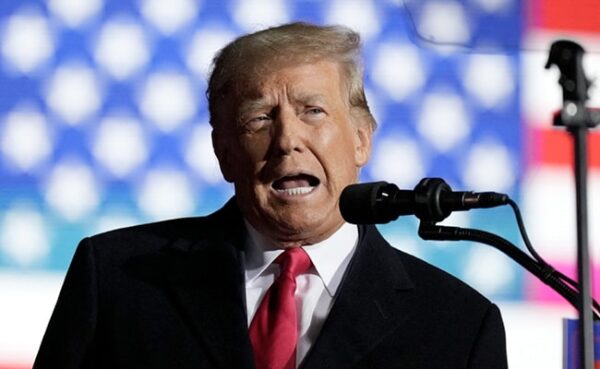A new world is starting to form , albeit it remains disguised within the clothes of the old.
The us , Britain, and Australia have announced what’s in effect a replacement “Anglo” military alliance. the fundamentals are these: In 2016, Australia struck a affect France to shop for a fleet of diesel-powered submarines, rejecting an Anglo-American alternative for nuclear-powered vessels. In March this year, Australian Prime Minister Scott Morrison (or, “that fellow down under,” as Joe Biden mentioned him), began talking with Washington about reversing its decision. Then, last night, during a live three-way public announcement, Biden, Morrison, and British Prime Minister Boris Johnson revealed that the Australians would scrap their agreement with France to team with Britain and therefore the U.S. instead, forming a replacement “AUKUS” military alliance within the process.
The French response has been apoplectic. The country’s minister of European and foreign affairs, Jean-Yves Le Drian, called the choice a “knife within the back.” Benjamin Haddad, from the Atlantic Council, in Washington, said it had set relations between the U.S. and France back to their lowest point since the Iraq War. Bruno Tertrais, of France’s Foundation for Strategic Research think factory went even further, calling it a “Trafalgar strike.”
Yet behind the serial of French anger and therefore the quiet crowing of les perfides anglo-saxons, sits something far more important: the faint outlines of a replacement world order, or a minimum of an effort to start out drawing one.
As Marx observed, leaders who attempt to create something new “conjure up the spirits of the past to their service.” Old language, slogans, and costumes are deployed to present the new scene in time-honored disguise. As such, President Biden went out of his thanks to praise France and to say that it remained a “key partner” within the Indo-Pacific. He was also at pains to means that the submarines that might eventually patrol Australia’s coastline weren’t nuclear-armed, but nuclear-powered. The U.S., Biden stressed, wasn’t breaking its nonproliferation commitments, but simply strengthening existing alliances.
Indeed, in one reading, the formation of an AUKUS military alliance features a sense of deep continuity. As Biden acknowledged , the three nations have fought together for many of the past 100 years and are core members of the Five Eyes intelligence-sharing alliance, alongside Canada and New Zealand. For France, especially , the announcement only reinforces its belief within the difference between Europe and therefore the Anglo-Saxon world. So much, so similar. (A senior Biden-administration official, speaking on condition of anonymity, said last night that Britain and Australia were America’s “oldest allies.” which may be news to France, which was allied to the nascent U.S. because it fought for independence from … Britain.)
But to look at the emergence of AUKUS as a symbol of continuity—as its architects have presented it—is to miss the purpose . Although Biden twice name-checked France in his remarks last night, the country on his mind was the one not mentioned at all: China.
The senior administration official said the alliance was designed to strengthen capabilities within the Indo-Pacific region by anchoring Britain “more closely with our strategic pursuits within the region as an entire .” But what’s Biden’s strategic pursuit?
In his statement last night, Biden, while faraway from being particularly eloquent, began a vision for a “free and open Indo-Pacific”—in other words, one freed from Chinese domination. consistent with a U.K. official I spoke with, this idea first emerged in Japan and has since been adopted by Australia, another Pacific power that has felt pressure from Beijing. It also fits in with Britain’s own stated pursuit of a peaceful and open international order, as began in its strategic review this year, which is that the centerpiece of Johnson’s foreign-policy vision. China’s foreign ministry spokesperson, Zhao Lijian, said the move “seriously undermines regional peace and stability,” and therefore the country’s embassy in Washington accused Britain, Australia, and the U.S. of getting a “Cold War mentality.”
Biden was keen to worry that AUKUS is an example of an alliance that projects American power, contrasting the event with Donald Trump’s rejection of such global compacts, which the previous president saw as freeloading on the U.S. And it’s certainly true that the new grouping marks an opportunity from Trump’s “America alone” approach. As one U.K. official put it to me: “Biden’s proposition is that China doesn’t do alliances, but ours have gotten a touch sleepy.” this is often also a move to stabilize an order that Trump rejected. This, then, may be a break from Trumpism—even if the French and other Europeans believe that the way they need been treated shows similar contempt.
For those within the U.S. concerned about the country’s imperial overreach, news that it’s signed up to yet one more alliance in defense of areas of the planet faraway from its shores could seem sort of a nightmarish reminder , even as the argument for strategic retrenchment seemed to be winning following America’s withdrawal from Afghanistan.
Biden and Johnson see a world of multiple and complementary alliances. Biden, for instance , spoke of “the quad” in his statement, the informal grouping of the U.S., Japan, India, and Australia that’s another pillar of Washington’s Chinese-containment policy. This marks a contrast to the 20th-century world, one which centered on a continent-wide military alliance to contain America’s then–rival superpower and a globe-spanning trade body. Johnson sees the emergence of today’s world, more unplanned and nimble, as perfect for post-Brexit Britain, which has—in his mind—unshackled itself from the permanence and inflexibility of the ecu Union to enter a more “dynamic” world where Britain can react quickly to events, signing up to new alliances like AUKUS supported its own national interests. (Critics would, of course, means that EU membership and global alliances aren’t mutually exclusive—see France.)
But what last night’s announcement also reflects is that the got to prop up a world order that has been left to wither after 20 years of complacency, hubris, and imperial overreach that Brexit and Trump’s election revealed the maximum amount as caused. the choice to ask Beijing into the planet financial system in 2001 has not led to anything just like the more liberal or democratic China that world leaders had envisaged, only a more powerful and more draconian adversary that has grown and grown while the U.S. and its allies (including Britain and Australia) were distracted within the Middle East and Afghanistan. In effect, the U.S. has to adapt to the new world of Chinese power so as to guard the old “free and open” world of worldwide trade and American supremacy that Washington built after the Second war .
The shocks of Trump and Brexit in 2016—the year Australia signed its original submarine affect France—have led, inadvertently and circuitously, to today’s world, where a political consensus now exists within the U.S., Britain, and Australia that Chinese power must be contained.
Taken together, the top of the war in Afghanistan, the pivot against China, and therefore the prioritization of the old Anglo alliances over the EU are all grand strategic moves. “When you create grand strategic moves,” British official said, “you piss people off.”
The new military alliance to contain Beijing’s rise looks, then, initially glance, sort of a reassertion of the old order, but it’s really one among the primary murmurings of a replacement one taking its place.



